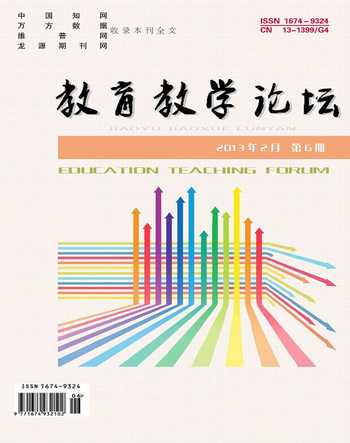A Review of Language Learning Strategy
金俊淑
Abstract:This paper presents definitions of language learning strategies,discusses four classifications of language learning strategies,focuses on research on language learning strategies,and it aims to provide a review of language learning strategy.
Key words:language learning strategy;review
中图分类号:G642.1 文献标志码:A 文章编号:1674-9324(2013)06-0122-02
I Introduction
Research and theory in second language learning strategy suggest that good language learners use a variety of strategies to assist them in gaining command over new language skills.Language learning strategies are specific actions or techniques that students are,often intentionally,to improve their progress in developing L2 skills.Strategies encompass a wide range of behaviors that can help the development of language competence in many ways (Oxford,1990).Appropriate learning strategies help to explain the performance of good language learners;inappropriate learning strategies aid in understanding the frequent failures of poor language learners and even the occasional weakness of good ones.
II Definition of Language Learning Strategies
There is a considerable debate as to appropriate ways of defining language learning strategies but no strong consensus as yet.Here is a table interpreting the definitions in terms of language learning strategies.
Ellis (1994)tries to list the main characteristics to define learning strategies:1)Strategies refer to both general approaches and specific actions or techniques used to learn an L2.2)Strategies are problem-oriented - the learner deploys a strategy to overcome some particular leaning problem.3)Learners are generally aware of the strategies they use and can identify what they consist of if they are asked to pay attention to what they are doing/thinking.4)Strategies involve linguistic behavior and non-linguistic.5)Linguistic strategies can be performed in the L1 and in the L2.6)Some strategies are behavioral while others are mental.Thus some strategies are directly observable,while others are not.7)In the main,strategies contribute indirectly to learning by providing learners with data about the L2 which they can then process.However,some strategies may also contribute directly.8)Strategy use varies considerably as a result of both the kind of task the learner is engaged in and individual learner preferences.
To sum up,the terms used to describe learning strategies and to account for their purpose are various,but they have much in common.Language learning strategies are specific actions or techniques that students are,often intentionally,to improve their progress in developing L2 skills.No matter what they are called,there is no doubt strategies can make learning efficient and effective.
III Classification of Language Learning Strategies
Subsequent descriptive studies have endeavored to identify broad classes of learning strategies,under which large numbers of more specific strategies can be grouped.The work of O'Malley and Chomat (2001),Wenden (1983),Oxford (1990),and Cohen (2000)has made an important contribution to our knowledge of learning strategies.
In Michael O'Malley and Anna Chamot's study,three major types of strategies are distinguished:cognitive,metacognitive,affective or social (Chamot,2001).Wenden's (1983)research examined the strategies that adult foreign language learners use in order to direct their own learning.Her focus is on what O'Malley and Chamot call metacognitive strategies.She identifies three general categories of self-directing strategies:(1)knowing about language,(2)planning,and (3)self-evaluation.Wenden's framework was devised as a basis for learner training.Cohen (2000)divided the strategies into language learning and language use strategies.
Oxford(1990)presented a new taxonomy of learning strategies,the general framework of which is shown in figure 1.
The frameworks developed by O'Malley and Chamot,Cohen,Wenden,and Oxford,provide a basis for studying which strategies or combinations of strategies are effective in promoting learning.
IV Research on Language Learning Strategies
Research on learning strategies has mainly focused on five domains:1)studies on good language learners;2)studies on comparisons between effective and ineffective learners;3)studies on the relationship between strategy use and language proficiency;4)studies on the factors influencing strategy use,and 5)studies on strategy training.
The study of learning strategies holds considerable promise,both for language pedagogy and for explaining individual differences in L2 learning.However,it is in his infancy.Still,this promising trend of language learning strategies can help to shift the responsibility for learning from the teachers to learners.
V Conclusion
This paper presents definitions of language learning strategies,discusses four classifications of language learning strategies,and focuses on research on language learning strategies,and it aims to provide a review of language learning strategy.The learning strategies of good language learners,once identified and successfully taught to less competent learners,could have considerable potential for enhancing the development of second language skills.Second language teachers can play an active and valuable role by teaching students how to apply learning strategies to new task both in the language class and in content areas requiring language skills.
References:
[1]Cohen,A.2000.Strategies in Learning and Using a Second Language.Beijing:Foreign Language Teaching and Research Press.
[2]Ellis,R.1994.The study of second language acquisition.Shanghai:Shanghai Foreign Language Education Press.
[3]O'Malley,J.& Chamot,A.2001.Learning Strategies in Second Language Acquisition.Shanghai:Shanghai Foreign Language Education Press.
[4]Oxford,R.1989.Variables affecting choice of language learning strategies by university students.The Modern Language Journal:Vol.73 (3).
[5]Oxford,R.1990.Language Learning Strategies:What Every Teacher Should Know.New York:Newbury House/Harper & Row.
[6]Rubin,J.1987.'Learning strategies:theoretical assumptions,research history and typology' in Wenden and Rubin.
[7]Weinstein,C.and R.Mayer.1986.'The teaching of learning strategies' in Wittrock.
[8]Wenden,A.1983.'Literature review:the process of intervention'.Language Learning 33:103-21.
[9]文秋芳.英语学习策略论[M].上海:上海外语教育出版社,1995.

